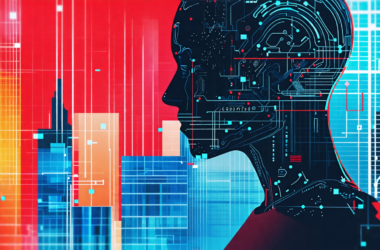The Silent Symphony: How AI is Orchestrating a Business Revolution
Picture this: You’re sitting in a bustling café, sipping your latte, when suddenly you realize the barista who just served you isn’t human. Welcome to 2024, where AI isn’t just knocking on the door of business – it’s already made itself at home and is rearranging the furniture.
As of October 16, 2024, a staggering 72% of organizations worldwide are using AI in at least one business function. That’s not just a trend; it’s a seismic shift that’s reshaping the business landscape faster than you can say machine learning. But what does this mean for you, dear reader? Let’s dive into the rabbit hole of ones and zeros and emerge with some golden nuggets of insight.
The AI Gold Rush: Panning for Digital Nuggets
Remember the California Gold Rush? Well, we’re in the midst of an AI Gold Rush, and everyone’s scrambling for a piece of the action. The global AI market is expected to grow by at least 120% year-over-year, with a projected growth of 33% in 2024 alone. It’s like watching a tech startup grow up and become a Fortune 500 company overnight.
But it’s not just the tech giants who are joining this digital stampede. AI adoption has gone global faster than you can say worldwide web. More than two-thirds of respondents in nearly every region report that their organizations are using AI. It’s as if the whole world decided to throw a party, and AI is the guest of honor.
The most popular hangout spots for AI? Marketing and sales, product and service development, and IT. In these areas, AI adoption has more than doubled from the previous year. It’s like watching your introverted friend suddenly become the life of the party – unexpected, but oddly satisfying.
The Economic Ripple Effect: When AI Makes It Rain
Now, let’s talk numbers – big numbers. AI is projected to contribute a whopping $15.7 trillion to the global economy by 2030. That’s not pocket change; that’s buy your own island money. It could potentially boost local economies’ GDP by an additional 26%. It’s like giving the global economy a triple shot espresso – things are about to get buzzing.
But what about jobs, you ask? Well, it’s a bit of a good news, bad news situation. By 2025, AI might eliminate 85 million jobs, but it’s expected to create 97 million new ones. That’s a net gain of 12 million jobs. It’s like watching a magic trick where the magician makes your watch disappear, only to pull it out of your ear – along with a shiny new smartwatch.
As Alex Chen, I can’t help but wonder: Are we ready for this AI-powered future? Or are we like cavemen discovering fire – fascinated by its potential but unaware of its full impact? One thing’s for sure: the AI revolution is here, and it’s not waiting for anyone. So, dear reader, are you ready to ride this wave of innovation, or will you be left watching from the shore? The choice, as they say, is yours.
Want to stay ahead of the AI curve? Subscribe to our newsletter for the latest insights and analysis. And tell us in the comments: How do you think AI will change your industry in the next five years?









